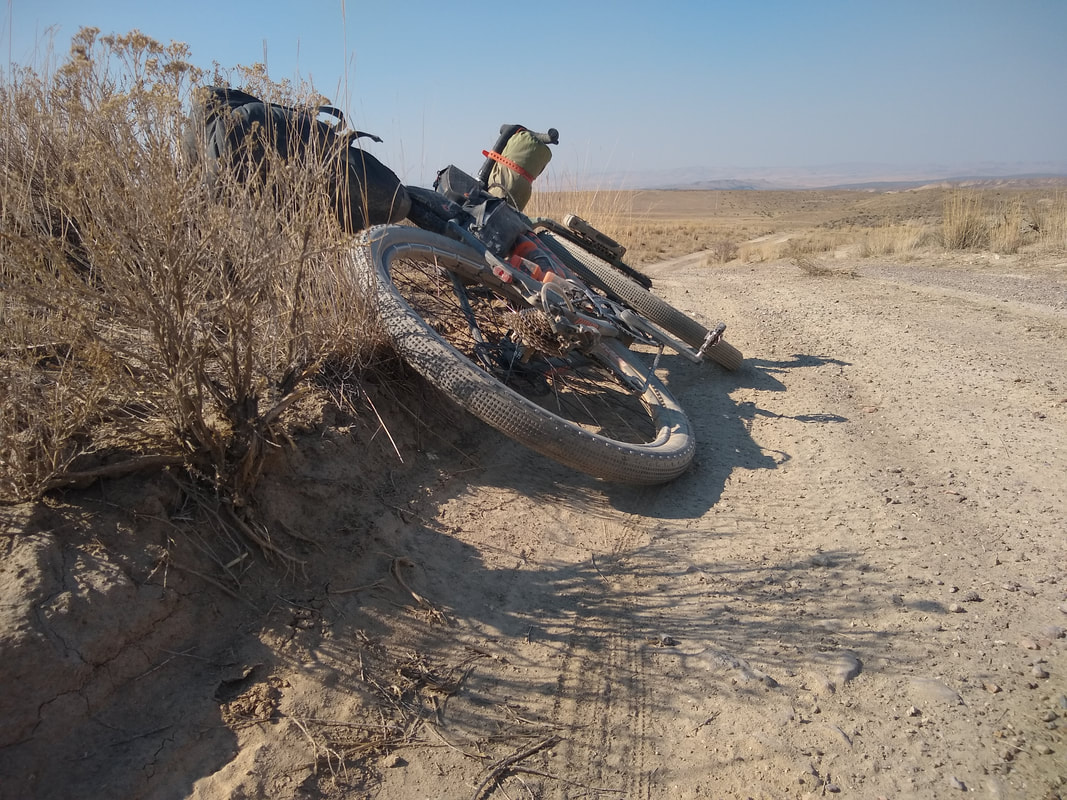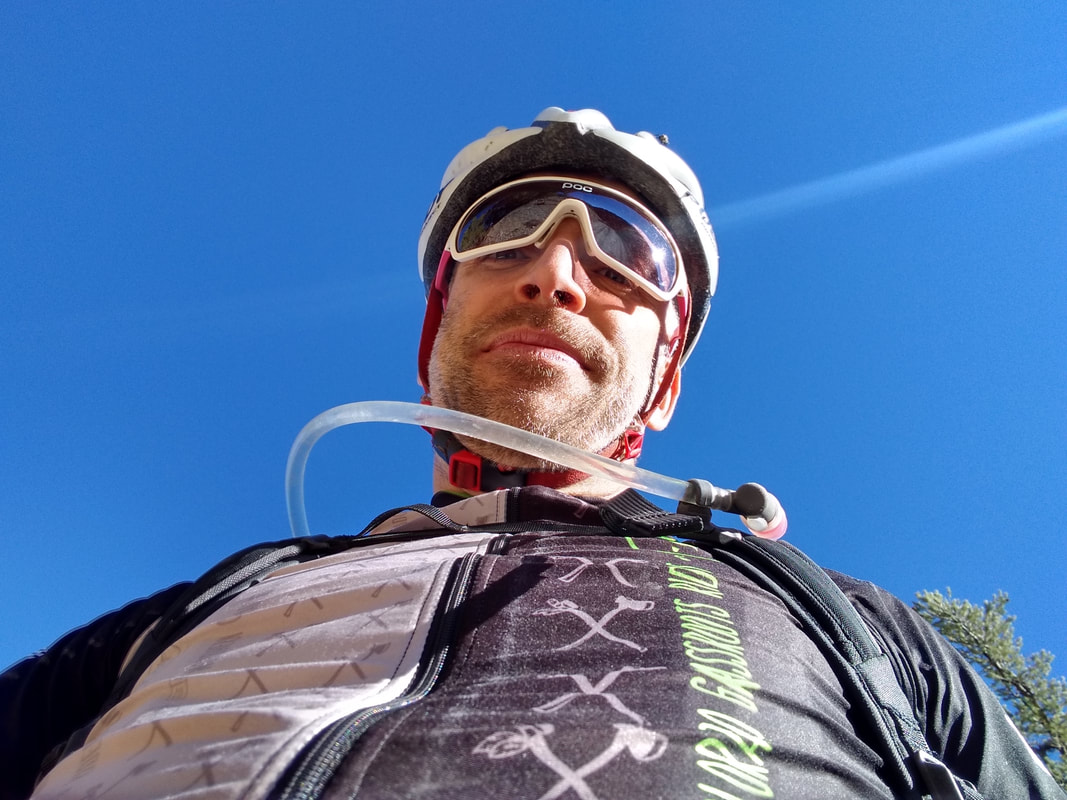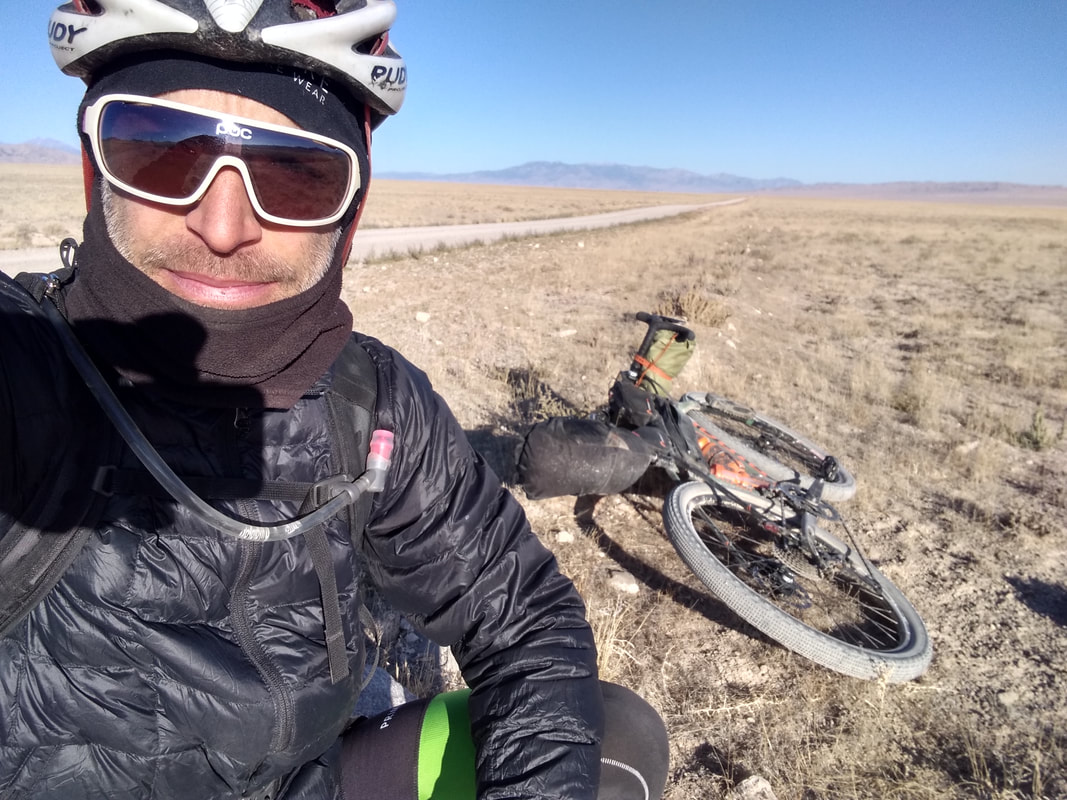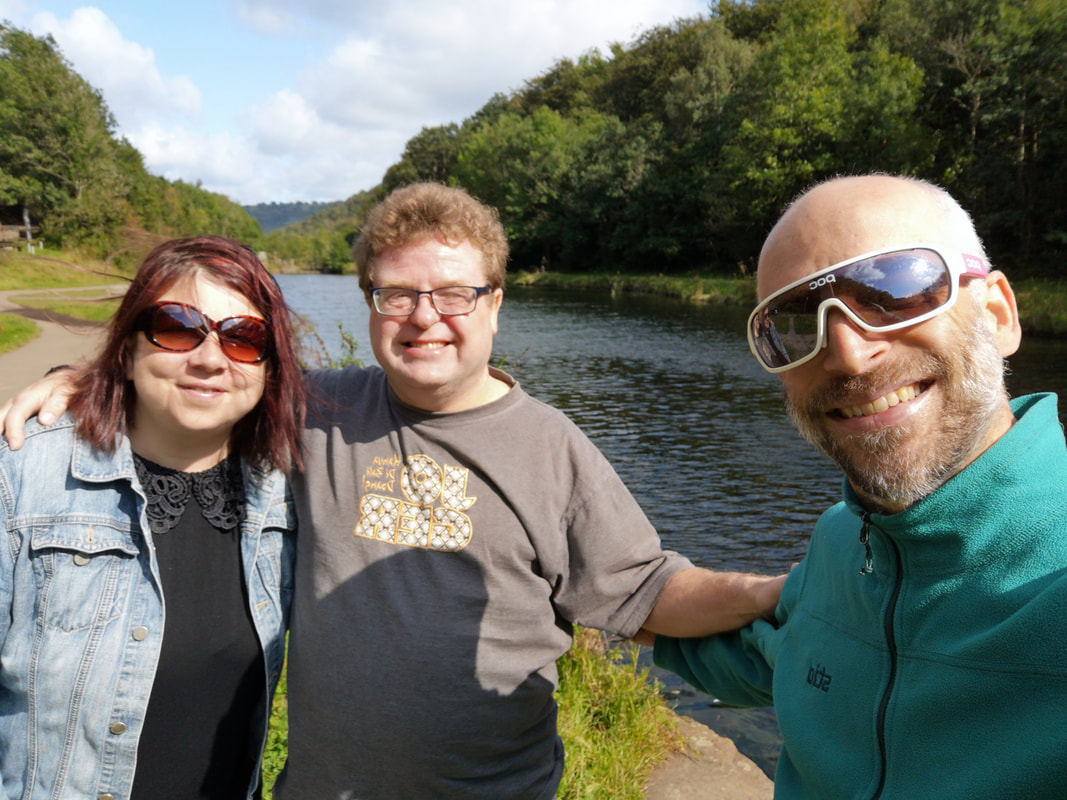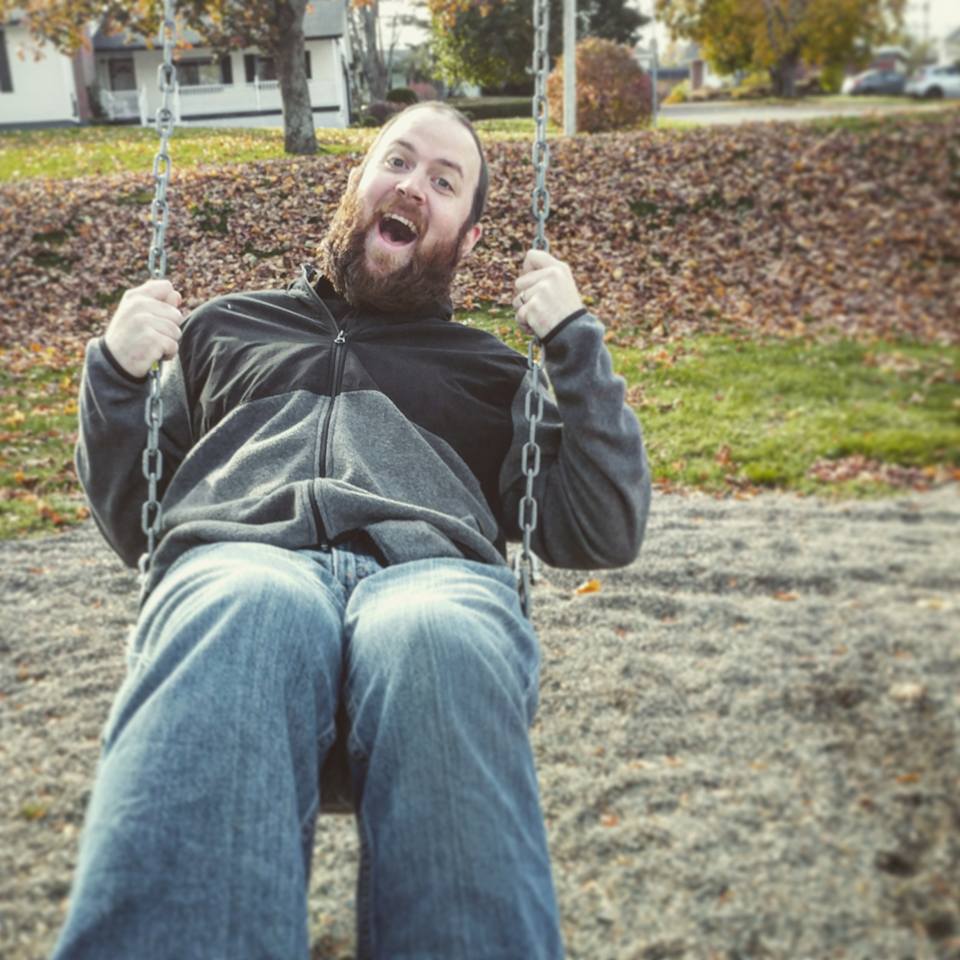Lifestyle Coach & Consultant
Background
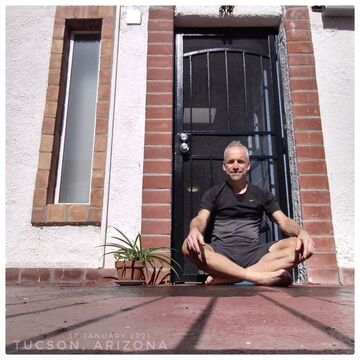
When we speak about "lifestyle" we are referring to a spectrum of habits, decisions that we make everyday and for the most part unconsciously, that influence how we feel in the here-and-now such as happy, sad, euphoric, or regretful. As this implies, by changing our habits we can change our outcomes from minute-to-minute, hour-to-hour, or day-to-day and with those changes increase our daily dose of positive, or negative, experiences.
Less transparent, are the implications of our habits for the long-term outcomes of life span and health span. Life span refers to the duration a person remains among the living; if you live to be 99 years old then that's your life span. Health span, in contrast, refers to how many years a person remains healthy, i.e., absent any debilitating and often degenerative (symptoms worsen through time) illnesses such as Alzheimer's and atherosclerosis (hardening of the arteries), and the myriad of complications associated with type-2 diabetes.
The challenges of visualizing how one more late, and often sweet, snack will contribute to our health span aside, there is no doubt 'what we do now' is an investment, or a divestment, in our future-selves and as such each expression of our habits, each snack, etc, is a statement about how much we value these future outcomes. However, rephrasing what we value is only part of the process of achieving a healthy lifestyle. Our foes in the war of actually improving our lifestyle and health span are considerable, our mind itself and industries that generate and promote refined sugar and other processed foods; substances that are known to derail our metabolism (through metabolic syndrome) and eventually send us down a path of degenerating illness.
Just as we are constantly criticized by the judge and the victim, two voices that seem to be lodged somewhere alongside 'us' between our ears and behind our eyes, we are similarly being bombarded, in the modern world, with manufactured doubt, half-truths, lies, and worse, science-based manipulation (they know our triggers) from industry and their marketing campaigns about what it means to, in particular, "eat healthy." That bombardment has effectively programmed the majority of us (see the concept of "the domestication of humans" in The Four Agreements, D.M. Ruiz, for more details), since birth, to develop and ingrain habits that ultimately favor industry profits at the expense of not only our own health span but also the health span of anyone influenced by our habits, especially our children.
For the most part, well before those marketing campaigns were imagined, refined, and delivered to the public, the first half of the 20th century, medical science advanced the average human life span by a few decades. Since that time, about 1950 to present, the integration and popularity of processed foods and especially white flour, refined sugar, and vegetable oils, key components of the Standard American or Western Diet, has actually reversed that longevity trend. By now, most individuals from so-called developed nations spend a significant portion of their old age not only suffering from one or more debilitating and often degenerative illnesses but many also succumb to these illnesses in their 40s and 50s, that is well before old age.
By now, the science literature and popular science books, such as The Diet Compass by Bas Kast, are overflowing with incontrovertible evidence that most of what ails us in "the west", including heart disease, many forms of cancer, and illnesses that lead to mental deterioration (such as Alzheimer's), do so because of choices that we are free, referring to our judicial systems but not the concept of free will, to change, to modify, to adapt whenever we choose to do so.
For example, say you want to improve your diet, then one strategy is to 'never bring home foods from the grocery store that contribute to poor health.' How about increase your energy level? Just 150 minutes a week, about 21 minutes a day, of vigorous exercise, such as a fast-paced walk, will boost your aerobic efficiency (by revitalizing mitochondria in your skeletal muscles in particular) and with it your energy level and this transformation will begin to happen in days versus weeks or months.
Through the process of dropping bad habits and adding good habits, which I can help you with, you'll change your lifestyle in positive ways. By changing your lifestyle, you'll add years to your health span, possibly your life span as well; and the same benefits will trickle down into the people that you spend the most time with including the ones nearest and dearest to your heart, your children among them.
Below I introduce what I refer to as 'the four pillars of a healthy lifestyle'. Each one represents a vast and exciting treasure trove of ways for improving lifestyle which I'll draw from in a structured and thoughtful way to help each individual that I work with achieve a new optimism about their health span. By making simple changes, incrementally, your cravings and the ambitions of trillion dollar, global food businesses can be for the most part removed as a contributor to what is yours and yours alone despite their incredible greed, your health span in particular but also your life span.
Less transparent, are the implications of our habits for the long-term outcomes of life span and health span. Life span refers to the duration a person remains among the living; if you live to be 99 years old then that's your life span. Health span, in contrast, refers to how many years a person remains healthy, i.e., absent any debilitating and often degenerative (symptoms worsen through time) illnesses such as Alzheimer's and atherosclerosis (hardening of the arteries), and the myriad of complications associated with type-2 diabetes.
The challenges of visualizing how one more late, and often sweet, snack will contribute to our health span aside, there is no doubt 'what we do now' is an investment, or a divestment, in our future-selves and as such each expression of our habits, each snack, etc, is a statement about how much we value these future outcomes. However, rephrasing what we value is only part of the process of achieving a healthy lifestyle. Our foes in the war of actually improving our lifestyle and health span are considerable, our mind itself and industries that generate and promote refined sugar and other processed foods; substances that are known to derail our metabolism (through metabolic syndrome) and eventually send us down a path of degenerating illness.
Just as we are constantly criticized by the judge and the victim, two voices that seem to be lodged somewhere alongside 'us' between our ears and behind our eyes, we are similarly being bombarded, in the modern world, with manufactured doubt, half-truths, lies, and worse, science-based manipulation (they know our triggers) from industry and their marketing campaigns about what it means to, in particular, "eat healthy." That bombardment has effectively programmed the majority of us (see the concept of "the domestication of humans" in The Four Agreements, D.M. Ruiz, for more details), since birth, to develop and ingrain habits that ultimately favor industry profits at the expense of not only our own health span but also the health span of anyone influenced by our habits, especially our children.
For the most part, well before those marketing campaigns were imagined, refined, and delivered to the public, the first half of the 20th century, medical science advanced the average human life span by a few decades. Since that time, about 1950 to present, the integration and popularity of processed foods and especially white flour, refined sugar, and vegetable oils, key components of the Standard American or Western Diet, has actually reversed that longevity trend. By now, most individuals from so-called developed nations spend a significant portion of their old age not only suffering from one or more debilitating and often degenerative illnesses but many also succumb to these illnesses in their 40s and 50s, that is well before old age.
By now, the science literature and popular science books, such as The Diet Compass by Bas Kast, are overflowing with incontrovertible evidence that most of what ails us in "the west", including heart disease, many forms of cancer, and illnesses that lead to mental deterioration (such as Alzheimer's), do so because of choices that we are free, referring to our judicial systems but not the concept of free will, to change, to modify, to adapt whenever we choose to do so.
For example, say you want to improve your diet, then one strategy is to 'never bring home foods from the grocery store that contribute to poor health.' How about increase your energy level? Just 150 minutes a week, about 21 minutes a day, of vigorous exercise, such as a fast-paced walk, will boost your aerobic efficiency (by revitalizing mitochondria in your skeletal muscles in particular) and with it your energy level and this transformation will begin to happen in days versus weeks or months.
Through the process of dropping bad habits and adding good habits, which I can help you with, you'll change your lifestyle in positive ways. By changing your lifestyle, you'll add years to your health span, possibly your life span as well; and the same benefits will trickle down into the people that you spend the most time with including the ones nearest and dearest to your heart, your children among them.
Below I introduce what I refer to as 'the four pillars of a healthy lifestyle'. Each one represents a vast and exciting treasure trove of ways for improving lifestyle which I'll draw from in a structured and thoughtful way to help each individual that I work with achieve a new optimism about their health span. By making simple changes, incrementally, your cravings and the ambitions of trillion dollar, global food businesses can be for the most part removed as a contributor to what is yours and yours alone despite their incredible greed, your health span in particular but also your life span.
The Four Pillars
My strategy for improving my own proximate (day-to-day) and long term (health span) outcomes and what I teach as a lifestyle coach can be partitioned into four pillars: sleep hygiene; nutrition; exercise; and mindfulness (a form of meditation). The order of the first pillar, sleep hygiene, is not an accident. The three that follow could be, though I am tempted to revise this conclusion even now, in any order.
For those that are curious, I'm tempted to place mindfulness first, then sleep hygiene, then the remaining two in any order. The more I learn about the four pillars, the more I'm tempted to elevate 'getting to know the mind' as a priority to everything else that defines a healthy lifestyle. Stay tuned, no doubt what I've written above and below will be revised many times before the conclusion of twenty-twenty-one, the first year that I began offering services as a lifestyle coach, adventure guide and consultant, guest speaker, and mentor.
Order aside, progress in these four areas, any progress, will almost certainly provide a measurable benefit which will trickle down into health span. For example, by adopting time-structured eating (check out these videos: part 1; part 2) on a daily basis, say a 10 hour window each day when food is allowed followed by 14 hours of water only fasting, is a proven, science-based way to improve sleep quality (e.g., fewer wake ups) and quantity (duration spent sleeping).
Regarding sleep quality, if a wearable sleep monitor is worn then number of wake-ups, duration of deep sleep versus REM, and more metrics can easily be measured. If you're prone to sleep apnea then this can also be quantified from a wearable and improvements, through time-structured eating and other recommendations from my quiver for improving sleep hygiene, can also be tracked.
Nutrition is in every meal and usually, in "the west", those meals occur 2-3 times daily. This implies many opportunities, good and bad, for improving or degrading health span one meal at a time. It also implies a significant topic to understand and integrate into your daily life and all of the unrelated responsibilities and habits that implies. Fortunately, I can take your hand and guide you to the best conclusions, as well as those that are still being negotiated by science (e.g., where does coconut oil sit on the spectrum of bad-to-good for you?).
Exercise can be as simple as you go for the minimum recommended dose that is, by now, widely accepted by health care clinicians that are not influenced by industry and their lobbyists through government recommendations and regulations. That minimum is 150 minutes of "vigorous" exercise each week, or 21 minutes a day, or roughly three sessions of 45 minutes each during the week. How you dice it doesn't matter for the most part. Vigorous refers to your aerobic capacity, you'll perform these 150 minutes at about 65% of your aerobic capacity, in lay terms that's about the intensity when it becomes difficult to have a conversation.
Beyond those (highly valuable) basics, I can as a former elite amateur athlete and now professional be your guide to much more ambitious exercise goals. Although I will draw a line before becoming your athletic coach, at least for the near term to avoid too much of a time commitment as I continue to race and train ten months of the year as an endurance-distance, mountain bike athlete, I can easily make recommendations that draw on my decade of experience in competitive sport.
Mindfulness meditation as I practice and teach it is dualistic in format, i.e., I, the subject, is focused on some object, which might be listening to chanting monks or the breath. This subject-object sets-up a duality that is popular in many forms of meditation. There are also non-dual forms of meditation, such as Dzogchen. In these practices, the practitioner has no point of focus, no object, and even the "I" is set aside in hopes of attaining self-transcendence. For my long term, personal ambitions practicing meditation, I hope to transition to a non-dual form and maybe even self-transcend some day!
In the meantime, my experience with a simple, dualistic form of meditation has left me without any doubt that 'being mindful', aka, "mindfulness", is an enviable state with many benefits. Among those, is a general detuning of your central nervous system.
We are, thanks in part to the onslaught of distractions represented by smartphones in particular, constantly on-line. Mindfulness meditation allows us to more or less shut down, to go off-line, and even if we do this for a minute a few days a week the result is an elevated sense of control, peacefulness, clarity, and similar feelings between sessions. When amplified to 5-20 minutes per day, and maybe in the morning paired with the Wim Hof breathing method and a cold shower, you truly will experience bliss as I do every morning in my own, ever expanding practice.
As that last statement implies, your relationship with the four pillars - sleep hygiene, nutrition, exercise, and mindfulness - should be integrated as, each one, a practice to be nurtured and improved for what remains of your life time. My own practices suggest to me that a goal of perfection of any sort is counterproductive. As I do with my yoga practice, primarily hot forms, by now I arrive to my mat (generally speaking) with an open heart and mind and whatever follows I try to embrace with gratitude and love.
The most difficult part of any challenge, including my bicycle tour across the sub-continent of Europe in 63 days in the autumn of 2019, is surprising in it's form and simplicity: getting started, which I often reference with a word, "begin." Once you begin then I assure you, you'll have your dream and actually, much, much more.
Get in touch here if you want to learn more. If appropriate, we'll talk about pricing for my services; or we''ll just enjoy a conversation and mutually benefit, an inevitable conclusion it seems from the otherwise devious quantum physics embedded in all of us, in fact all things.
For those that are curious, I'm tempted to place mindfulness first, then sleep hygiene, then the remaining two in any order. The more I learn about the four pillars, the more I'm tempted to elevate 'getting to know the mind' as a priority to everything else that defines a healthy lifestyle. Stay tuned, no doubt what I've written above and below will be revised many times before the conclusion of twenty-twenty-one, the first year that I began offering services as a lifestyle coach, adventure guide and consultant, guest speaker, and mentor.
Order aside, progress in these four areas, any progress, will almost certainly provide a measurable benefit which will trickle down into health span. For example, by adopting time-structured eating (check out these videos: part 1; part 2) on a daily basis, say a 10 hour window each day when food is allowed followed by 14 hours of water only fasting, is a proven, science-based way to improve sleep quality (e.g., fewer wake ups) and quantity (duration spent sleeping).
Regarding sleep quality, if a wearable sleep monitor is worn then number of wake-ups, duration of deep sleep versus REM, and more metrics can easily be measured. If you're prone to sleep apnea then this can also be quantified from a wearable and improvements, through time-structured eating and other recommendations from my quiver for improving sleep hygiene, can also be tracked.
Nutrition is in every meal and usually, in "the west", those meals occur 2-3 times daily. This implies many opportunities, good and bad, for improving or degrading health span one meal at a time. It also implies a significant topic to understand and integrate into your daily life and all of the unrelated responsibilities and habits that implies. Fortunately, I can take your hand and guide you to the best conclusions, as well as those that are still being negotiated by science (e.g., where does coconut oil sit on the spectrum of bad-to-good for you?).
Exercise can be as simple as you go for the minimum recommended dose that is, by now, widely accepted by health care clinicians that are not influenced by industry and their lobbyists through government recommendations and regulations. That minimum is 150 minutes of "vigorous" exercise each week, or 21 minutes a day, or roughly three sessions of 45 minutes each during the week. How you dice it doesn't matter for the most part. Vigorous refers to your aerobic capacity, you'll perform these 150 minutes at about 65% of your aerobic capacity, in lay terms that's about the intensity when it becomes difficult to have a conversation.
Beyond those (highly valuable) basics, I can as a former elite amateur athlete and now professional be your guide to much more ambitious exercise goals. Although I will draw a line before becoming your athletic coach, at least for the near term to avoid too much of a time commitment as I continue to race and train ten months of the year as an endurance-distance, mountain bike athlete, I can easily make recommendations that draw on my decade of experience in competitive sport.
Mindfulness meditation as I practice and teach it is dualistic in format, i.e., I, the subject, is focused on some object, which might be listening to chanting monks or the breath. This subject-object sets-up a duality that is popular in many forms of meditation. There are also non-dual forms of meditation, such as Dzogchen. In these practices, the practitioner has no point of focus, no object, and even the "I" is set aside in hopes of attaining self-transcendence. For my long term, personal ambitions practicing meditation, I hope to transition to a non-dual form and maybe even self-transcend some day!
In the meantime, my experience with a simple, dualistic form of meditation has left me without any doubt that 'being mindful', aka, "mindfulness", is an enviable state with many benefits. Among those, is a general detuning of your central nervous system.
We are, thanks in part to the onslaught of distractions represented by smartphones in particular, constantly on-line. Mindfulness meditation allows us to more or less shut down, to go off-line, and even if we do this for a minute a few days a week the result is an elevated sense of control, peacefulness, clarity, and similar feelings between sessions. When amplified to 5-20 minutes per day, and maybe in the morning paired with the Wim Hof breathing method and a cold shower, you truly will experience bliss as I do every morning in my own, ever expanding practice.
As that last statement implies, your relationship with the four pillars - sleep hygiene, nutrition, exercise, and mindfulness - should be integrated as, each one, a practice to be nurtured and improved for what remains of your life time. My own practices suggest to me that a goal of perfection of any sort is counterproductive. As I do with my yoga practice, primarily hot forms, by now I arrive to my mat (generally speaking) with an open heart and mind and whatever follows I try to embrace with gratitude and love.
The most difficult part of any challenge, including my bicycle tour across the sub-continent of Europe in 63 days in the autumn of 2019, is surprising in it's form and simplicity: getting started, which I often reference with a word, "begin." Once you begin then I assure you, you'll have your dream and actually, much, much more.
Get in touch here if you want to learn more. If appropriate, we'll talk about pricing for my services; or we''ll just enjoy a conversation and mutually benefit, an inevitable conclusion it seems from the otherwise devious quantum physics embedded in all of us, in fact all things.
Testimonials
|
Character: Ian
Home: Newport, Wales, UK "20 years ago I was fine. Over several months I became more unwell and spent the next 10 years seeing various specialists without much success. For the last 10 years I have just lived with tiredness, exhaustion and made the best of it. With guidance and instruction starting Jan 2021 from André I have gone from this low function to feeling completely different. I have had days without pain and my energy and capability are back to levels from my thirties. I also lost 21 pounds so far, but most important I am heading in a positive direction which no medical person previously helped me achieve. |
I really want to stress that no-one else could fix, it seems, the debilitating issues I was experiencing, and there was a long list of specialists that I went to who tried and failed. André is a complete star."
|
Character: Patrick
Home: Fredericton, New Brunswick, Canada "I received help from André for a year; in that year I made several lifestyle changes prompted with his guidance that showed positive results. I lost a considerable amount of weight with his coaching and achieved some great goals. I started this journey with André, unable to slowly jog for even 2 minutes without stopping from either pain or exhaustion. By the end of the year, I was jogging for 13 miles straight without stopping. Andre's approach is really a paradigm shift in the way we approach health and well being, because his coaching is multifaceted and not just about exercise: It's about diet; it's about mental health |
and the way you think; it's about setting real goals and achieving them through commitment and I assure you if you commit you will achieve those goals. His approach is based on facts and science. If you're looking for someone to be 100% in your corner and committed to your well-being, the choice is clear - André will see you through it all."
|
Character: Andrew
Home: Portland, Maine, USA "I worked with André as my life coach. He brings such a tremendous amount of experience to the table. My initial concern proved to be totally unfounded, that André, as a professional athlete, would not be able to relate to me as the average individual, not super motivated to exercise or change my lifestyle. He created a plan tailored to me, starting at a point that I could follow. His coaching is at all levels, mental, physical, and nutrition. His own journey with living a healthy lifestyle is a positive example. He motivated |
me to walk six days a week and I enjoyed every minute of it. He is also constantly learning and adapting, helping you overcome tough periods and setbacks. I was amazed at his knowledge of the interaction between what we eat and how our bodies function. André suggested certain changes to my work routines, sleep patterns, eating habitats and activity levels that anyone can do. My time with him was well worth it. I would recommend his services to anyone that is interested in changing their current lifestyle, you will not regret it."

